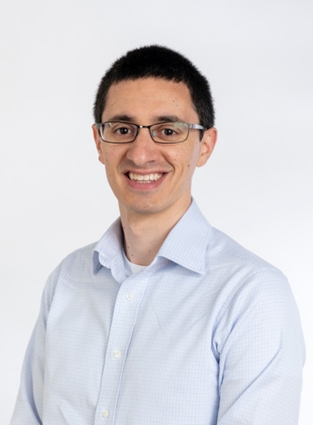检测到您当前使用浏览器版本过于老旧,会导致无法正常浏览网站;请您使用电脑里的其他浏览器如:360、QQ、搜狗浏览器的极速模式浏览,或者使用谷歌、火狐等浏览器。
 下载Firefox
下载Firefox
检测到您当前使用浏览器版本过于老旧,会导致无法正常浏览网站;请您使用电脑里的其他浏览器如:360、QQ、搜狗浏览器的极速模式浏览,或者使用谷歌、火狐等浏览器。
 下载Firefox
下载Firefox
js6666金沙登录入口-欢迎你
题 目: In vivo CRISPR screens reveal the landscape of immune evasion pathways across cancer
Assistant Professor of Medicine
Massachusetts General Hospital Cancer Center
Harvard Medical School
Associate Member, Broad Institute
时 间: 5月15日(周一)9:00-10:00
会议号:910 9636 7823
密码:cqb2023
https://zoom.us/j/91096367823?pwd=ZUVOYnZ1SkxQY1Z1QkllZzRib3dPUT09
主持人: 曾泽贤 研究员
摘 要:
The immune system can eliminate tumors, but checkpoints enable immune escape. Here, we identify immune evasion mechanisms using genome-scale in vivo CRISPR screens across cancer models treated with immune checkpoint blockade (ICB). We identify immune evasion genes and important immune inhibitory checkpoints conserved across cancers, including the non-classical major histocompatibility complex class I (MHC class I) molecule Qa-1b/HLA-E. Surprisingly, loss of tumor interferon-γ (IFNγ) signaling sensitizes many models to immunity. The immune inhibitory effects of tumor IFN sensing are mediated through two mechanisms. First, tumor upregulation of classical MHC class I inhibits natural killer cells. Second, IFN-induced expression of Qa-1b inhibits CD8+ T cells via the NKG2A/CD94 receptor, which is induced by ICB. Finally, we show that strong IFN signatures are associated with poor response to ICB in individuals with renal cell carcinoma or melanoma. This study reveals that IFN-mediated upregulation of classical and non-classical MHC class I inhibitory checkpoints can facilitate immune escape.
Robert Manguso’s lab studies cancer immunology using a variety of techniques including mouse models, cellular immunology, functional genomics, and single cell RNA- sequencing. His major contributions have been in the development of functional genomics and genetics approaches to understand how cancer cells evade the immune system and to identify the pathways and targets that could be therapeutically manipulated to improve immunotherapy. He completed his graduate studies with Nicholas Haining at the Dana-Farber Cancer Institute, where the lab studied CD8+ T cell effector differentiation and T cell exhaustion. There, his work focused on the development of a high-throughput in vivo CRISPR screening technology in mouse tumor models to identify genes used by tumor cells to evade immune attack. This work identified several novel genes that could be targeted to enhance immunotherapy, including PTPN2 and ADAR1. After completing his PhD, he built an immunotherapy-focused lab at the Broad Institute which uses CRISPR technology and systems biology for target discovery called the Tumor Immunotherapy Target Discovery Engine (TIDE) and in 2019 joined the faculty in the Center for Cancer Research at Massachusetts General Hospital. Since opening the lab at the Broad and MGH, his group has developed new technologies for in vivo genetic screens, identified new immune checkpoints that restrain the function of anti-tumor immunity, and developed new methods for triggering immune recognition of cancer cells. The long-term goals of his research are to understand the basic mechanisms of immune evasion by tumors, develop therapeutic strategies to overcome immunotherapy resistance, and create new technologies and methods to probe the interactions between tumor cells and host cells in vivo.
